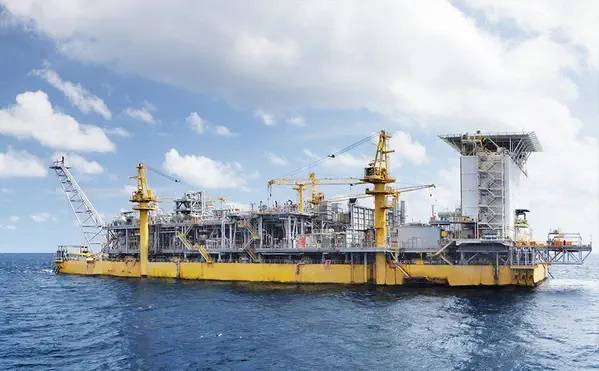
Egypt is seeking investment in all aspects of energy production, whether it be in traditional fossil fuels or renewables, the Minister of Petroleum and Mineral Resources Tarek El Molla has said.
“I cannot say that we will do one bucket on the account of the other. We have to do them all,” Mr El Molla said at the Egypt Petroleum Show in Cairo on Tuesday.
“We need investments in exploration, we need investments in [the energy] transition, we need investments in renewables, we need investments in decarbonisation … We need investments in all aspects and I wouldn’t prioritise any of them.”
Oil demand is set to reach 102 million barrels a day this year and increase to 110 million bpd by 2025, Opec Secretary General Haitham Al Ghais said at the opening of the industry conference on Sunday.
The disruption of the market following Russia’s invasion of Ukraine a year ago has pushed up the prices of oil and natural gas, particularly in the heavily dependent European market.
Oil prices closed 2022 with a second straight annual gain with Brent gaining about 10 per cent and US crude rising about 7 per cent.
Wholesale prices of electricity and gas in Europe have surged as much as 15-fold since early 2021, according to the International Monetary Fund.
Egypt, which hosted the UN climate conference Cop27 in November, has committed to sourcing 42 per cent of its energy from renewable sources by 2030, from about 20 per cent currently.
However, as the country suffers from the economic fallout of the Russia-Ukraine war, it is also looking for ways to solve its foreign currency crunch and maximise its natural gas exports as Europe looks for new energy suppliers.
Mr El Molla said earlier this week that the state is planning to offer three international gas and oil tenders this year and has an “ambitious plan” to drill more than 300 exploration wells by 2025.
“Because we have seen the prices of oil and gas are extremely high now … this will have a negative impact on many economies in the world. Therefore, we need to increase the production of these fossil fuels, but in a responsible manner,” Mr El Molla said.
“Otherwise, less investments means less production, that means higher prices, and it is going to be a vicious cycle.”
Natural gas
Egypt expects to produce about 7.5 million tonnes of liquefied natural gas this year, in line with production in 2022, when it shipped 80 per cent of its LNG to Europe, said Mr El Molla.
The North African country and Israel signed a framework agreement with the EU in June to increase LNG sales to European countries. Under the deal, Israeli gas is transported by pipeline to Egypt’s LNG plants before being shipped to Europe.
But expansion in export capacity under the deal will take time and significant investments, industry leaders said during a panel discussion on Tuesday.
Egypt has the capacity to export about 13 million tonnes annually through its Idku and Damietta plants, said Magdy Galal, head of state-run operator EGas.
Adding five production trains to the two plants could bring total capacity to more than 30 million tonnes, but “it is not cheap”, Mr Galal said.
Yossi Abu, chief executive of Israel’s NewMed Energy, said he was confident the two countries would reach a final agreement “that creates a win-win to everybody”.
Exploration
In Egypt, Chevron and Eni recently made a “significant” gas discovery at their Nargis block off North Sinai, reportedly in the range of 100 billion cubic metres. Each company holds a 45 per cent interest while state-owned Tharwa Petroleum holds the remaining 10 per cent.
Chevron entered the Egyptian market in 2020, picking up four exploration blocks and another two when it acquired Noble Energy.
It also has a 40 per cent stake in Israel’s mammoth gasfield Leviathan and 25 per cent in Tamar.
Chevron International’s president for exploration and production Clay Neff said at the conference on Tuesday that the US company is “pursuing some very important expansion of those assets”.
While Chevron has committed to lowering its emissions to 35 per cent by 2028 and reaching net zero by 2050, Mr Neff said that “gas is going to play a key role for decades to come”.
“We’re unapologetically going to grow our traditional business. We know the world needs it,” he said.
Chevron and Egypt’s Petroleum Ministry also signed an agreement this week to co-operate on projects to lower its carbon footprint, including reducing methane emissions.
Chevron has halved its methane emissions since 2016, according to Mr Neff.
Several industry leaders spoke of the energy “trilemma” of affordability, availability and sustainability.
“We need to keep now a firm eye on where we are going, how to turn this crisis into a foundation for a more sustainable energy future,” EU energy commissioner Kadri Simson said at the event.
Source: https://www.hellenicshippingnews.com/
